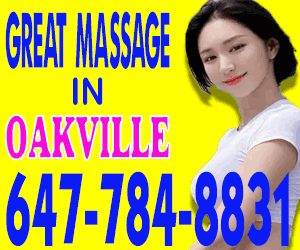Clairissa Baker St. Cloud Times
Published 7:23 PM EDT Jul 5, 2019
ST. CLOUD — Requirements for massage business licenses in St. Cloud may be changing amid increased focus on sex trafficking.
A public hearing is scheduled July 22 before the City Council to examine suggested changes to the St. Cloud ordinance and comes weeks after reports of illicit activity at two businesses in Waite Park.
Many massage businesses go through the licensingprocess to operate safely and effectively, but officials hope additional regulations will curb potential illicit activity and protect local businesses.
The changes stem from a routine look at older ordinances, according to Matt O’Brien, director of the St. Cloud Health Department.
Some of the most notable changes include adding license requirements for individual therapists and expanding criteria for investigations.
For one local business, regulations are seen as an important way to moderate safe, effective massage therapy.
Creating 'safe, affordable' therapy

Beth Huber, owner of Quick Fix Massage, 620 Roosevelt Road, has been in the business since 2006 and manages the license and regulation information for the business.
Quick Fix moved in April to a larger space, more than double its previous location, and has continued to expand by adding chiropractors and, soon, another massage technique called Ashiatsu, or barefoot massage.
"We've been around so long that I've met the children of clients, and now their children," Huber said. "We are generational."
Huber works to ensure her business and employees are held to the highest standard, she said, and have to comply with a number of requirements to operate.
“I’ve sent in packs and packs of paperwork,” Huber said of the licensing process, including building insurance, credentials as an owner and drivers licenses for every employee. “It is a lot.”
More: Deceived, isolated and manipulated: Sex trafficking in illicit massage shops
Huber and Rebecca Nielsen, a massage therapist, are open to further regulations.
"I think the regulations in Minnesota really need to be worked on," said Nielsen, citing a lack of state regulation, "because I think that's where we're having problems."
Nielsen completed around 800 hours of training to become a massage therapist.
All of the therapists at Quick Fix, Huber said, are accredited through one of the national massage organizations — the American Massage Therapy Association or the Association of Bodywork Professionals.
The biggest challenge for Huber is finding qualified professionals to work.
“We’re dealing with some complex problems,” Huber said. “We really need to know our business.”

Huber has also experienced an extra toll to overcome the stigma of places that operate illicitly, and employees are careful to explain to customers the massage process.
As a massage therapist, Nielsen said she talks about any questions or concerns people may have before a massage and goes over pertinent medical information.
For Nielsen, massage therapy is health. She enjoys connecting with people, "being able to provide therapeutic touch" and "resolving issues they wouldn't be able to resolve themselves," she said.
Huber views Quick Fix not as a luxury spa, but a place for therapy. The business helps people "who are in crisis" and "suffering" with injuries and stress.
“We’re trying to overcome problems that exist at other places,” Huber said. “The stigma of it hurts."
What's changing?
O’Brien said the department reached out to several local massage businesses about the proposed ordinance changes and had them review the documentation. Every person approved of the updates, he said, and some suggested additional changes.

Some of the biggest changes include expanding investigation criteria and adding license requirements for individual massage therapists, according to O'Brien. Under the old ordinance, only businesses were licensed.
Massage therapist applicants would need to submit information about their training, physical descriptions and driver's licenses.
More: Couple suspected of promoting prostitution after search of Oriental Massage in Waite Park
Applicants would also need to list any arrests, charges or convictions of crimes or ordinance violations, as well as noting if they have “ever been the subject of an investigation, public or private, criminal or non-criminal, regarding massage therapy.”
Another potential change expands when the city can deny or revoke licenses. The city previously needed a conviction of prostitution, trafficking or other crime to take action against an establishment, O'Brien said.
Waiting for a case to proceed in court could take a significant amount of time, but with the proposed change, if officials have evidence of illegal activity happening, they could take action before a conviction.
The city may also deny licenses for establishments for a number of reasons, including criminal convictions or misconduct related to operating a massage therapy business.
People may attend and comment at the hearing July 22. The council meeting at City Hall starts at 6 p.m.
Let's block ads! (Why?)
Published 7:23 PM EDT Jul 5, 2019
ST. CLOUD — Requirements for massage business licenses in St. Cloud may be changing amid increased focus on sex trafficking.
A public hearing is scheduled July 22 before the City Council to examine suggested changes to the St. Cloud ordinance and comes weeks after reports of illicit activity at two businesses in Waite Park.
Many massage businesses go through the licensingprocess to operate safely and effectively, but officials hope additional regulations will curb potential illicit activity and protect local businesses.
The changes stem from a routine look at older ordinances, according to Matt O’Brien, director of the St. Cloud Health Department.
Some of the most notable changes include adding license requirements for individual therapists and expanding criteria for investigations.
For one local business, regulations are seen as an important way to moderate safe, effective massage therapy.
Creating 'safe, affordable' therapy
Beth Huber, owner of Quick Fix Massage, 620 Roosevelt Road, has been in the business since 2006 and manages the license and regulation information for the business.
Quick Fix moved in April to a larger space, more than double its previous location, and has continued to expand by adding chiropractors and, soon, another massage technique called Ashiatsu, or barefoot massage.
"We've been around so long that I've met the children of clients, and now their children," Huber said. "We are generational."
Huber works to ensure her business and employees are held to the highest standard, she said, and have to comply with a number of requirements to operate.
“I’ve sent in packs and packs of paperwork,” Huber said of the licensing process, including building insurance, credentials as an owner and drivers licenses for every employee. “It is a lot.”
More: Deceived, isolated and manipulated: Sex trafficking in illicit massage shops
Huber and Rebecca Nielsen, a massage therapist, are open to further regulations.
"I think the regulations in Minnesota really need to be worked on," said Nielsen, citing a lack of state regulation, "because I think that's where we're having problems."
Nielsen completed around 800 hours of training to become a massage therapist.
All of the therapists at Quick Fix, Huber said, are accredited through one of the national massage organizations — the American Massage Therapy Association or the Association of Bodywork Professionals.
The biggest challenge for Huber is finding qualified professionals to work.
“We’re dealing with some complex problems,” Huber said. “We really need to know our business.”

Huber has also experienced an extra toll to overcome the stigma of places that operate illicitly, and employees are careful to explain to customers the massage process.
As a massage therapist, Nielsen said she talks about any questions or concerns people may have before a massage and goes over pertinent medical information.
For Nielsen, massage therapy is health. She enjoys connecting with people, "being able to provide therapeutic touch" and "resolving issues they wouldn't be able to resolve themselves," she said.
Huber views Quick Fix not as a luxury spa, but a place for therapy. The business helps people "who are in crisis" and "suffering" with injuries and stress.
“We’re trying to overcome problems that exist at other places,” Huber said. “The stigma of it hurts."
What's changing?
O’Brien said the department reached out to several local massage businesses about the proposed ordinance changes and had them review the documentation. Every person approved of the updates, he said, and some suggested additional changes.

Some of the biggest changes include expanding investigation criteria and adding license requirements for individual massage therapists, according to O'Brien. Under the old ordinance, only businesses were licensed.
Massage therapist applicants would need to submit information about their training, physical descriptions and driver's licenses.
More: Couple suspected of promoting prostitution after search of Oriental Massage in Waite Park
Applicants would also need to list any arrests, charges or convictions of crimes or ordinance violations, as well as noting if they have “ever been the subject of an investigation, public or private, criminal or non-criminal, regarding massage therapy.”
Another potential change expands when the city can deny or revoke licenses. The city previously needed a conviction of prostitution, trafficking or other crime to take action against an establishment, O'Brien said.
Waiting for a case to proceed in court could take a significant amount of time, but with the proposed change, if officials have evidence of illegal activity happening, they could take action before a conviction.
The city may also deny licenses for establishments for a number of reasons, including criminal convictions or misconduct related to operating a massage therapy business.
People may attend and comment at the hearing July 22. The council meeting at City Hall starts at 6 p.m.
Let's block ads! (Why?)

































































































